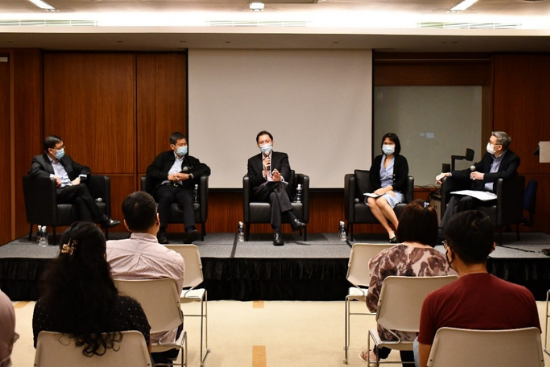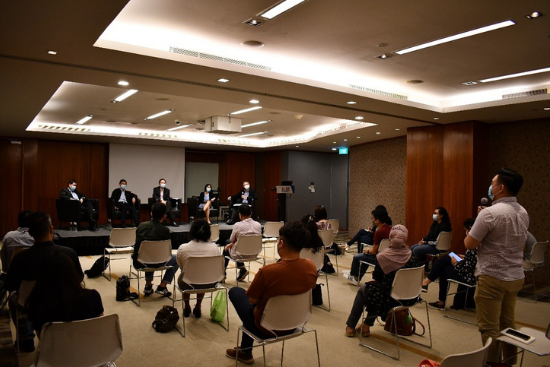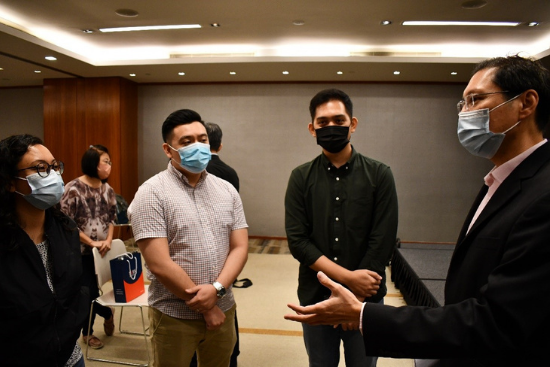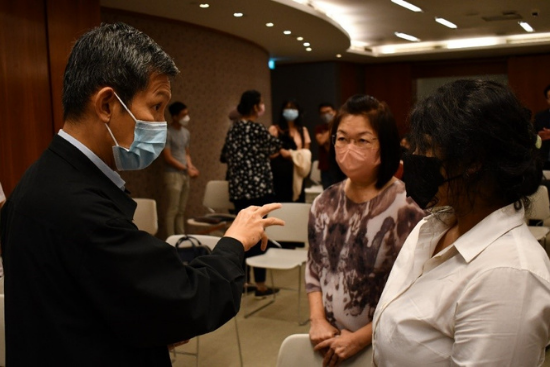In the law industry, what does it mean to prosecute in public interest? How do Deputy Public Prosecutors (DPPs) make an assessment or determination as to what the “public interest” is?
The inner workings of prosecutorial work are often shrouded in mystery, but the work of the Attorney-General’s Chambers (AGC) was demystified at a recent lecture with key figures from AGC. Deputy Attorney General, Mr Tai Wei Shyong, and panellists – Chief Executive, Mr Hui Choon Kuen, Chief Prosecutor (Crime Division), Mr Tan Kiat Pheng, and Head, School of Legal Knowledge, Ms Charlene Tay Chia, spoke to SUSS Law students on the topic of prosecutorial discretion in an enlightening lecture that included a lively panelist discussion and interactive Q&A session.

Deputy Attorney-General (DAG), Mr Tai Wei Shyong (middle), responding to a student’s question together with panellists, (from left to right) Chief Executive, Mr Hui Choon Kuen; Chief Prosecutor (Crime Division), Mr Tan Kiat Pheng; Head, School of Legal Knowledge, Ms Charlene Tay Chia; and moderator, SUSS School of Law faculty, Associate Professor Mr Alvin Cheng.

SUSS School of Law student, Muhammad Matin Bin Abdul Razak (standing), posing a question to the panellists.
Our students had the opportunity to question and understand the complex deliberation process behind several high-profile charging and sentencing decisions that sparked debate in public forums. They also learnt about the delicate balance that the Prosecution has to maintain between the interests of the public, the government and the offender when making charging decisions.

DAG Tai Wei Shyong (far right) engaging with some students after the lecture.

Chief Prosecutor Tan Kiat Pheng (left) interacting with law students, Siew Gek Wah (middle) and Maria Santosh (right).
Our students left the session with a deeper appreciation of how the prosecution makes its decisions. This was best summed up by SUSS School of Law (SLAW) student, Maria Santhosh, who shared how this session impacted her: “Prosecutorial discretion is a topic I’ve learnt in my Criminal Law and Procedure modules, and it was exciting to hear about it directly from the AGC, from the individuals who put it into practice. Through this session, I have received a deeper understanding of the complex deliberation behind charging and sentencing decisions. I had the opportunity to ask the panel questions after the lecture and interacted directly with the speakers. It was humbling to have the opportunity to meet such key figures of AGC and for them to answer my questions and directly give me career advice.”